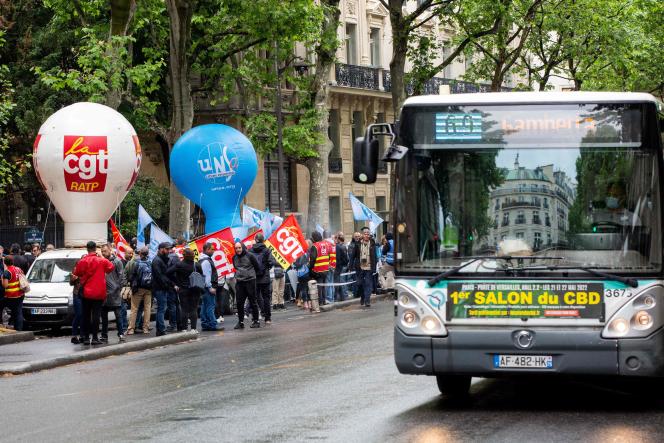On the third day of a drivers’ strike, the RATP predicts “severely disrupted traffic on the bus and tram network”, Wednesday, May 25, while a separate social movement will affect metro lines 3 and 13 in the evening.
The RATP plans “on average seven out of ten trams and only at peak times depending on the lines” and warns that for buses, “some lines will be interrupted”, according to the company’s Twitter account. On the other bus lines, there will be “on average two out of three buses with variations depending on the sector”.
Three days of strike are planned, until Wednesday, at the call of all the unions. At the same time, metro lines 3 and 13 will see the last trains depart at 8 p.m. from each terminus and line 3bis will be closed all day on Wednesday, according to the RATP website. This social movement is linked to discussions on the remuneration of management.
This is the third social movement at the RATP in less than four months, after a big mobilization for wages on February 18 (very followed in the metro and the RER), and the strike day of March 25, which, conversely, mainly affected bus lines, since it was linked to the upcoming entry (January 1, 2025) of the RATP surface network into a competitive system.
New organization of work scheduled for July 1
For more than a year, the RATP has been negotiating with the unions to adapt the working conditions of its 18,000 machinists (bus and tram drivers) to the opening up to competition. No agreement could be reached with any of the four representative organizations of the company (CGT, FO, UNSA, CFE-CGC) before the closing date of negotiations set by management, namely April 29.
This new triple strike comes, in a way, to put an end, and symbolically conflicting, to the failure of these negotiations. Management announced in early May that it would take unilateral action.
The RATP, which is for the first time confronted with calls for tenders on its historic monopoly (twelve lots of bus lines will be put on the market), is seeking to bring its house rules, advantageous for its employees, closer to social rules minimums that will be imposed on all operators in Paris and in the inner suburbs from 2025. This new organization of work, preparatory to the competitive big bang, must be put in place at the RATP on July 1.


















